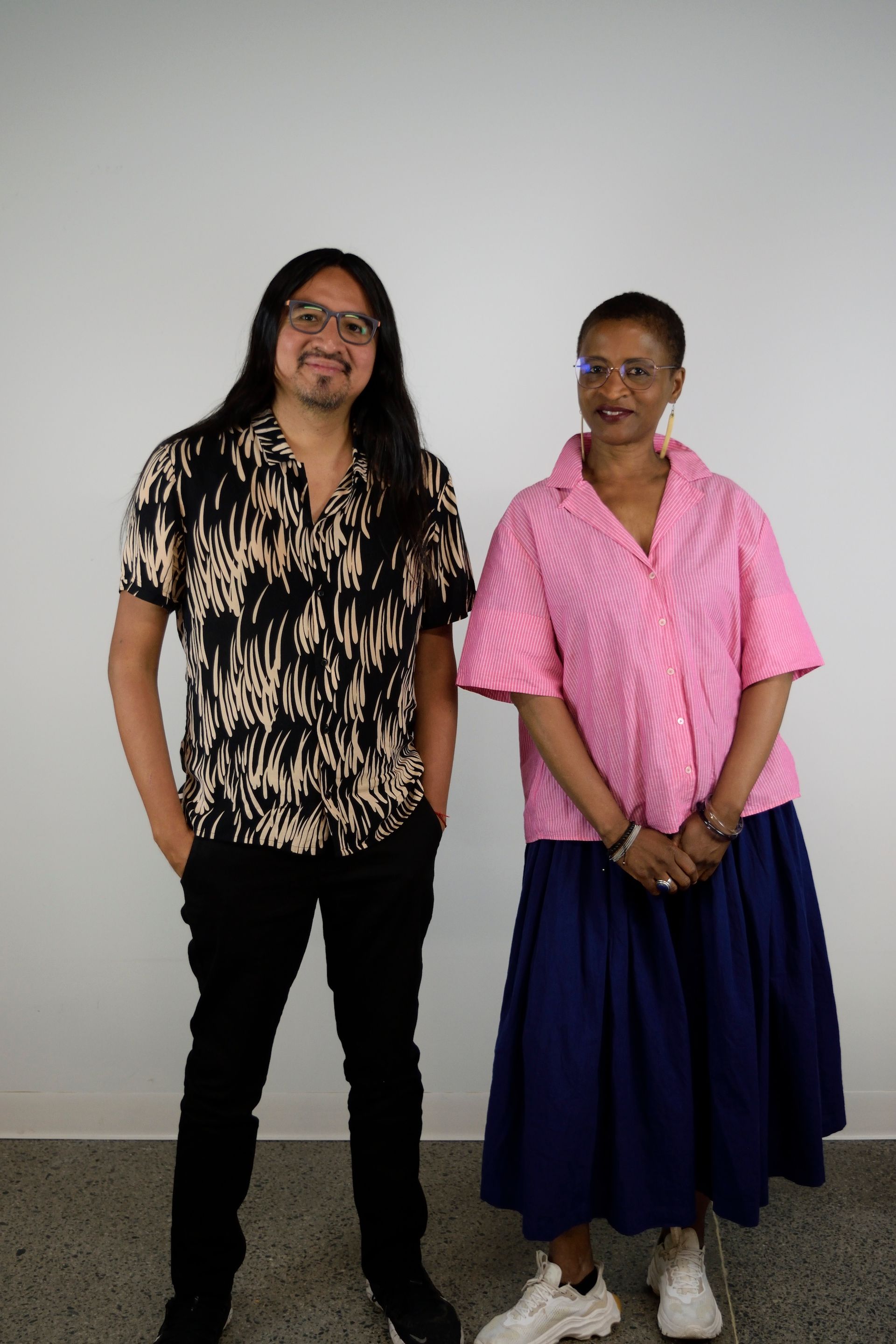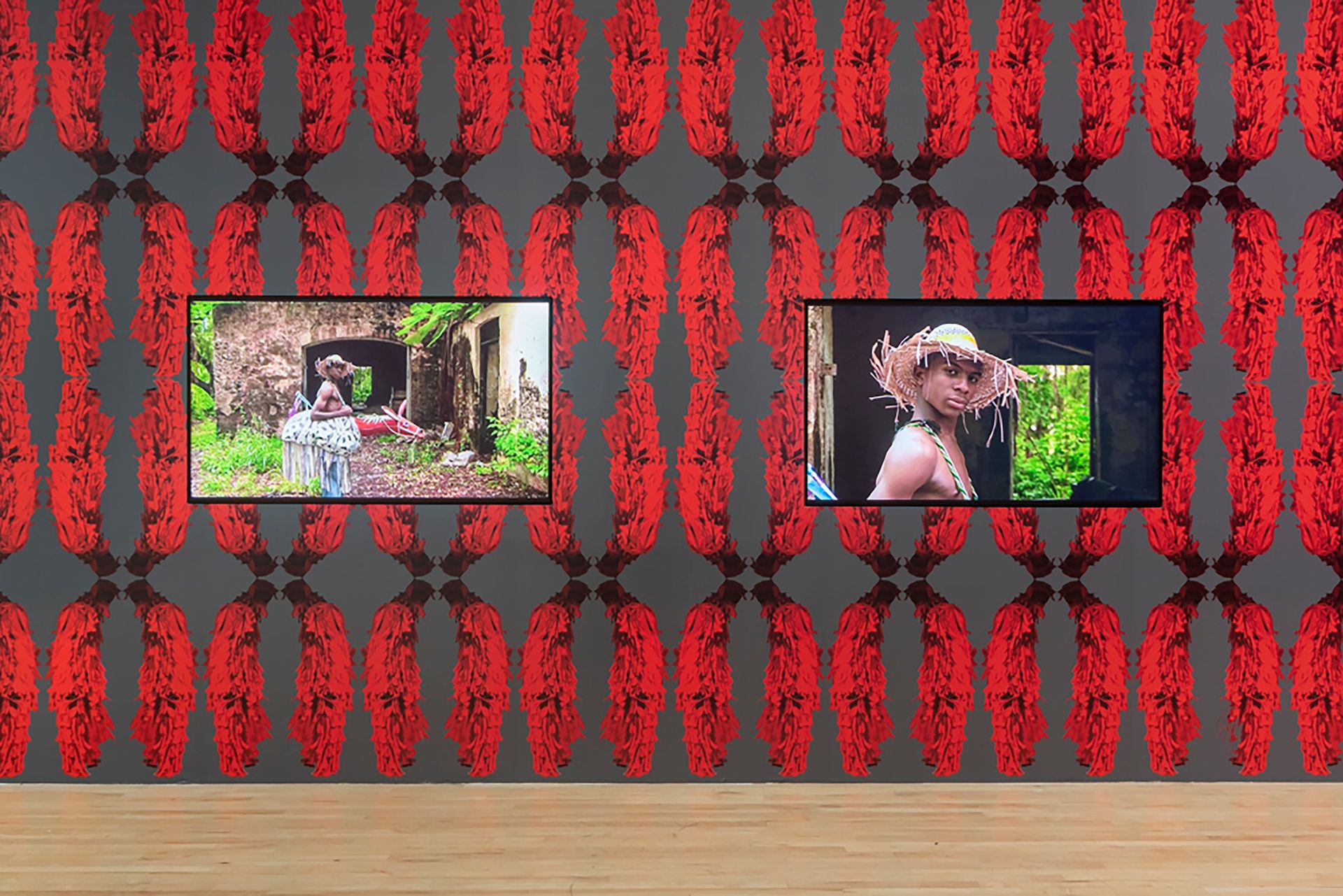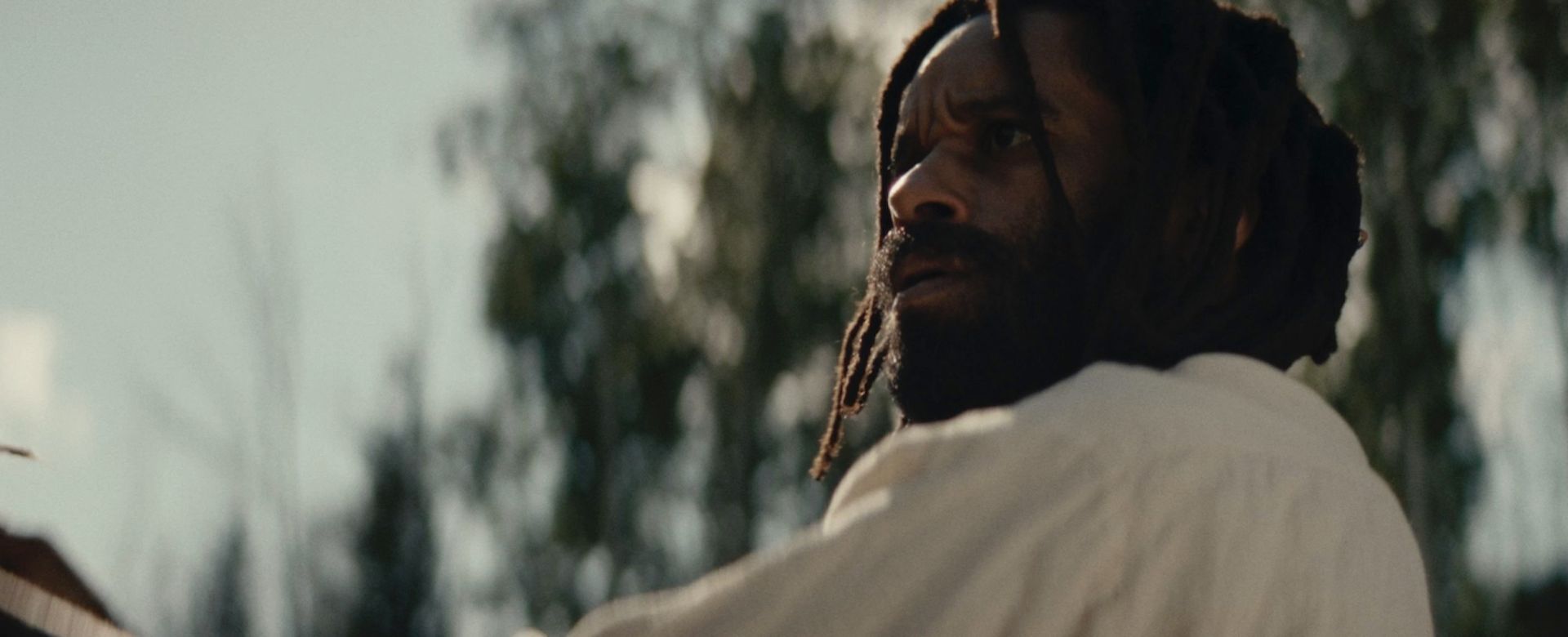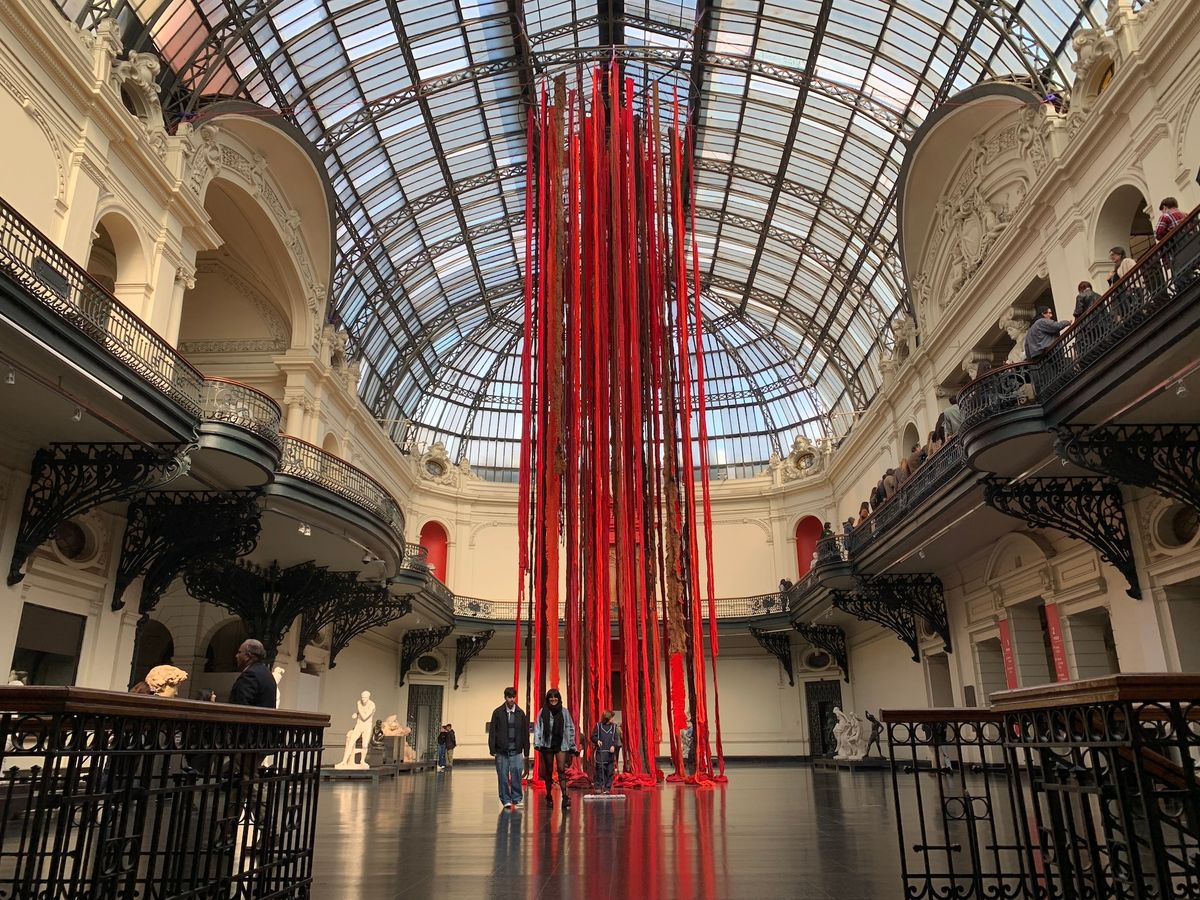The third edition of Toronto Biennial of Art, titled Precarious Joys (21 September-1 December), will span 11 primary locations and a handful of partner sites. At the helm are the co-curators, Dominique Fontaine and Miguel A. López, and Patrizia Libralato, the biennial’s founder and executive director, and Susannah Rosenstock, deputy director and director of exhibitions, who is promising “a visual treat,” with some 36 artists taking part.
“Some of the presented artworks address the various layers of history that define life in Toronto, while others reflect broader social and political structures of inequality and power under global neoliberal governance,” Fontaine and López write in their curatorial statement. “Key issues that resonate across the exhibition include environmental justice, sovereignty, self-representation, belonging and migration, land dispossession, collective memory, feminist genealogies, diasporic sonic cultures, sacred plant wisdom, weaving as spiritual listening, resistance and resilience, ancestorship and queer worldmaking. Rather than presenting a single theoretical assertion, however, Precarious Joys is organised around open dialogues and poetic connections.”

The co-curators of the 2024 Toronto Biennial of Art, Miguel A. López and Dominique Fontaine Courtesy Toronto Biennial of Art
The central exhibition and programming hub is at 32 Lisgar Street, in the heart of the Queen Street West neighbourhood, long a haunt of artists and gallery-goers. That space will host 15 large-scale projects by contemporary Canadian and international artists, as well as weekly storytelling sessions. Two additional hubs are located on the ninth floor of the Auto Bldg at 158 Sterling Road and at Collision Gallery.
The biennial’s other downtown Toronto locations include the Art Gallery of Ontario (AGO), the Image Centre at Toronto Metropolitan University, the Toronto Sculpture Garden, Union Station and the Power Plant Contemporary Art Gallery. West end locations include Gallery TPW, a prominent billboard at the intersection of Abell Street and Queen Street West and terminal 1 at Pearson International Airport.
“It’s pretty intense,” Rosenstock tells The Art Newspaper of organising a show across many venues bringing together pieces and projects by 36 artists. “We have to be very flexible.” She adds: “We have to have artists who are flexible, too.”
The biennial’s second edition, which was delayed due to the pandemic, boasted such stars as Brian Jungen, Denyse Thomasos and Camille Turner. This edition features plenty of projects by bold-face names, too.

Sonia Boyce, Crop Over, 2007 and Shaggy Bear Wallpaper, 2020. Photo © Tate; Devotional Placards and Wallpaper, 2018. Image: Mike Pollard for Manchester Art Gallery.
“Sonia Boyce is probably the best-known international artist in this biennial and we’re so excited to be presenting Feeling Her Way, her work for the British Pavilion at the 2022 Venice Biennale that won the Golden Lion award, in partnership with the AGO,” says Rosenstock. “Cecilia Vicuña is a senior artist from Chile whose work has never been shown in Canada in a significant way.” Asked at the biennial's media launch which were his favorite pieces on view, López said, “It’s super hard to name a favorite”—before citing Vicuña.
Several works by Vicuña will be at two of the venues, including one of her large, hanging Quipus pieces made of knotted chords, as used by the Incas. Fontaine and López’s title for the biennial, Precarious Joys, was inspired by her work.
The Canadian Jamaican artist Charles Campbell was commissioned to create a new project titled how many colours has the sea and described by Rosenstock as “a massive, immersive, multi-sensory installation”. It is biennial’s first co-commission with the National Gallery of Canada in Ottawa, and its first major presentation with the Power Plant.

Manuel Mathieu, Pendulum (film still), 2023 Courtesy of the artist, Matenmidiswa Productions and Afro Dynamic Films. ©Manuel Mathieu
The Montreal-based artist Manuel Mathieu, who is best known for his paintings and sculpture, is trying something new for his show at Gallery TPW. “We are presenting his first film work,” says Rosenstock, “a newly commissioned piece entitled Pendulum.”
Fontaine and López spent months travelling, visiting with artists, spending time in their studios, having conversations and developing the list of key directives for the show.“It was very important to them in developing the biennial that they were taking cues from the artists and engaging in meaningful dialogues,” Rosenstock says. “This is also reflected in our audio guide, for which we’ve asked each of the artists to record a short description of their work.”
The biennial’s inaugural weekend figures to be a busy one, with an opening party at 32 Lisgar Street on Friday (20 September), followed by a slew of events on 21 September and continuing through the run of the exhibition.
- 2024 Toronto Biennial of Art: Precarious Joys, various locations, Toronto, until 1 December


